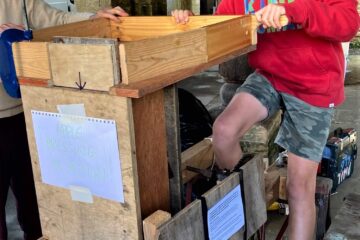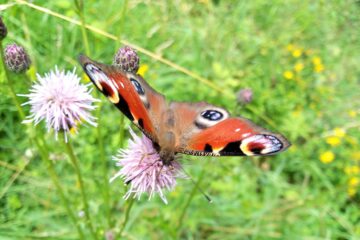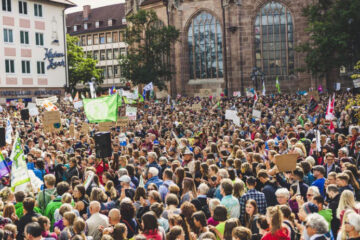Many of us Brits love our beef. The aroma of a roasting joint weaving through Sunday lunches spent laughing and chatting with loved ones. Steaks sizzling over an open fire; the backing track to easy, dreamy summer-evening barbecues spent relaxing. Roadside, train-station, street-corner burgers hotly, greasily punctuating the match, the gig, the night out while we celebrate and commiserate in equal measure with our mates.
Beef is a part of our life and powerfully evocative. For our farming community, beef is a way of life. The emotional pull we feel is tiny compared with beef being everything you depend on and live for. And yet…
Change is coming, whether we like it or not.
A deep-rooted behavioural change can be difficult and uncomfortable. It’s far easier to deny or ignore something that doesn’t align with our own belief system. But we no longer have that luxury – we either take control of the changes we’re faced with and make them work for us, or we ignore and deny them with potentially catastrophic results. And if like me, you’re just a local doing your best to do the right thing, the biggest change you can make is to reduce the amount of beef and cheese you eat.
A few troubling facts
The beef and dairy industry is a contentious issue in any debate about climate change. Depending on which study you read, beef is either the first or second most carbon-intensive food in production. Either way, according to the data, red meat is vastly more environmentally damaging than any other food in our diet, not only because of the carbon intensity of the rearing of cattle, but also the colossal amount of ozone-damaging methane that ruminants emit. They also need a lot of water – about 100 litres a day!
Cheese production fares little better. In fact, many climate-conscious vegetarians might be horrified to learn that cheese production is responsible for more carbon emissions per kilo than pork chicken or fish.
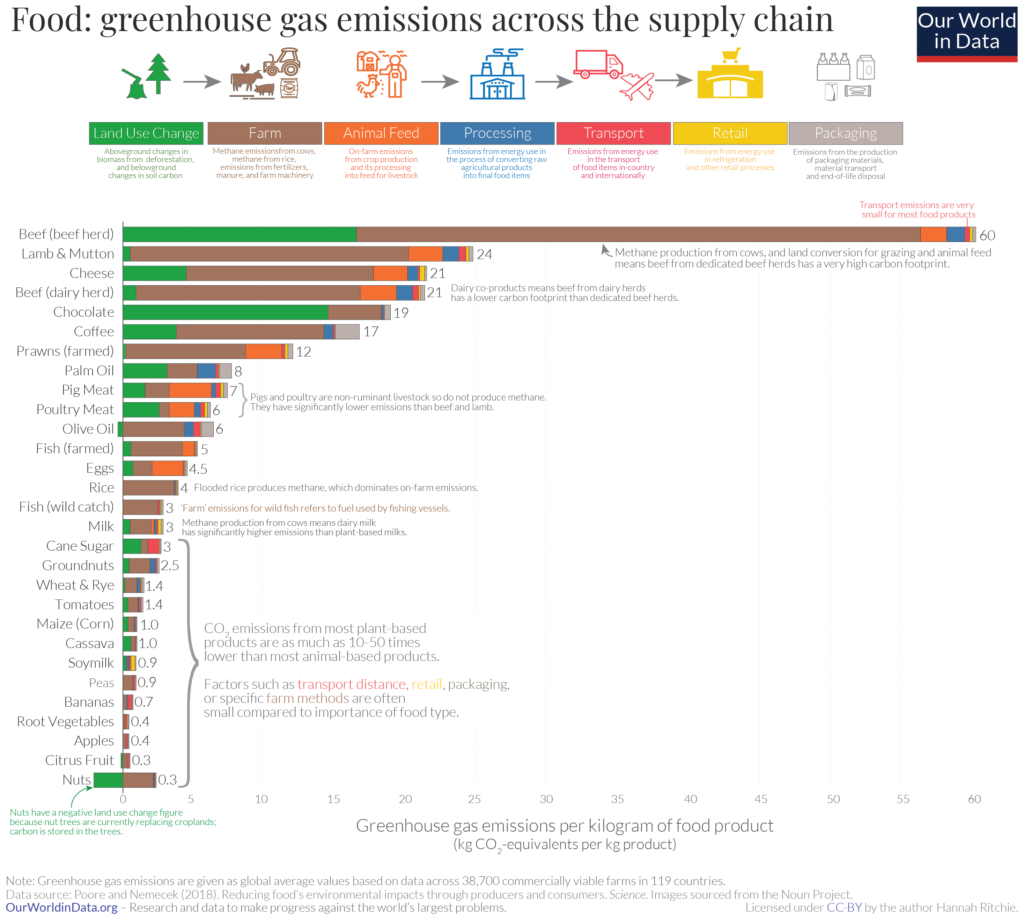
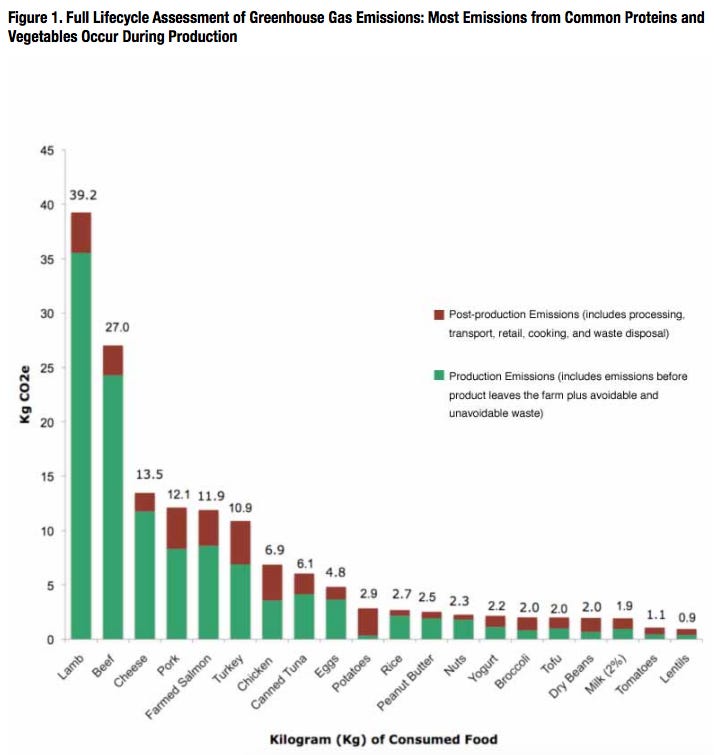
To further contextualise it, the food industry as a whole is said to account for approximately 26% of global greenhouse gas emissions, which means what you choose to put on your plate can have a major impact when it comes to climate change.
So where does all this leave our community and our beloved bovine herds?
The cows on the Commons
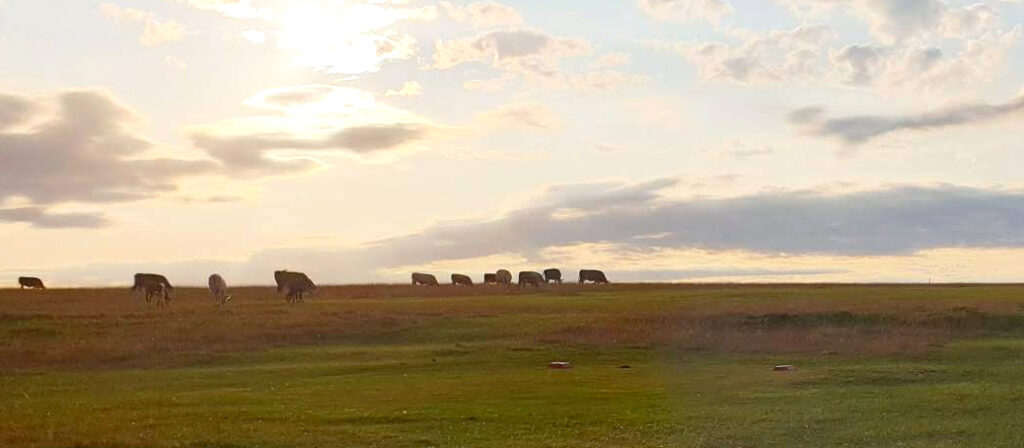
Our situation in Minchinhampton Parish is unique. Our cows are more than food and jobs, they’re central to making here what it is.
Anyone who has lived near our Commons for any length of time knows we talk about our cows. A lot. When they’re coming out, when they’re going in, what they’re up to, cow pats, ‘cow jams’, keeping the calves safe from speeding vehicles… We have popular annual traditions and festivals around them, such as Marking Day and the eagerly-anticipated Amberley Cow Hunt. They’re the subject of many a heated debate on Facebook, and they feature as part of many a local creative or commercial endeavour.
For anyone passing through or visiting, they’ll remember our Commons as places where the cows roam free. Cattle are a central part of the character of our little patch, and as a community, we’re proud and very fond of them.
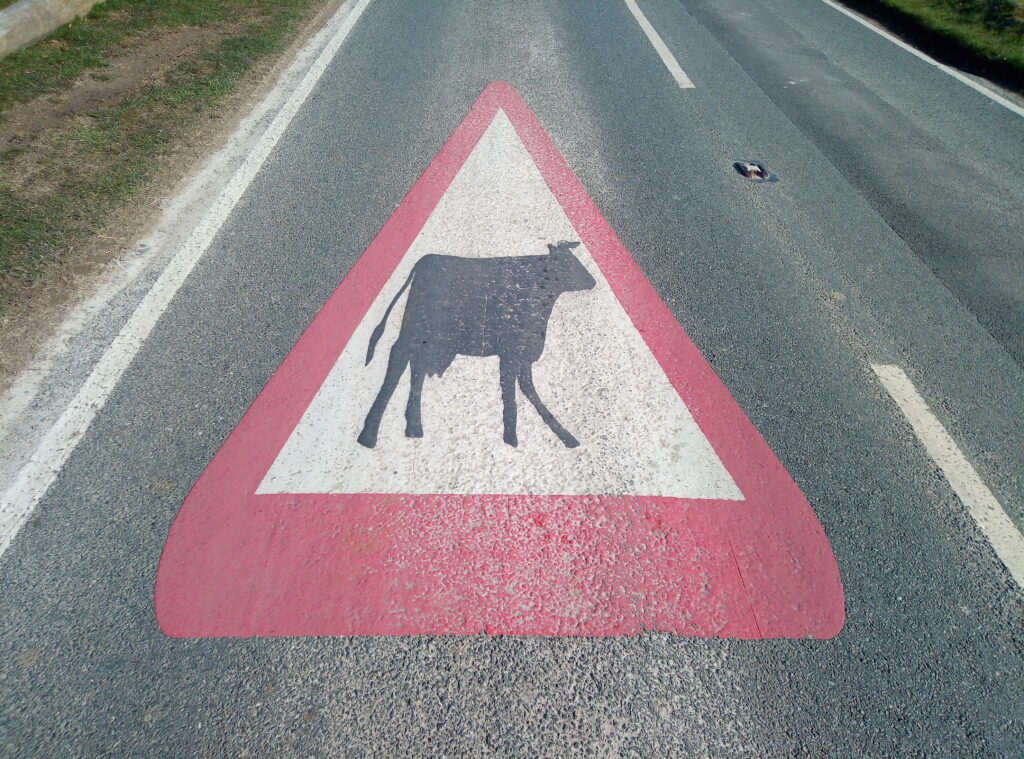
Natural England has designated our Commons as Sites of Special Scientific Interest due to the rare flora and fauna that can be found here, flora and fauna that thrive solely because grazing cattle create the right conditions for them. They fertilise the soil and keep the grasslands trimmed, making perfect habitats for butterflies, orchids, larks, and a variety of protected wild species.
However it is that we have cows on our Commons, as part of our food chain or not, we need them there for the landscape, for the habitats, for the countless species who rely on them being there, which would disappear without the rugged grassland the cows create. Our cows are a special case, that need looking after, not getting rid.
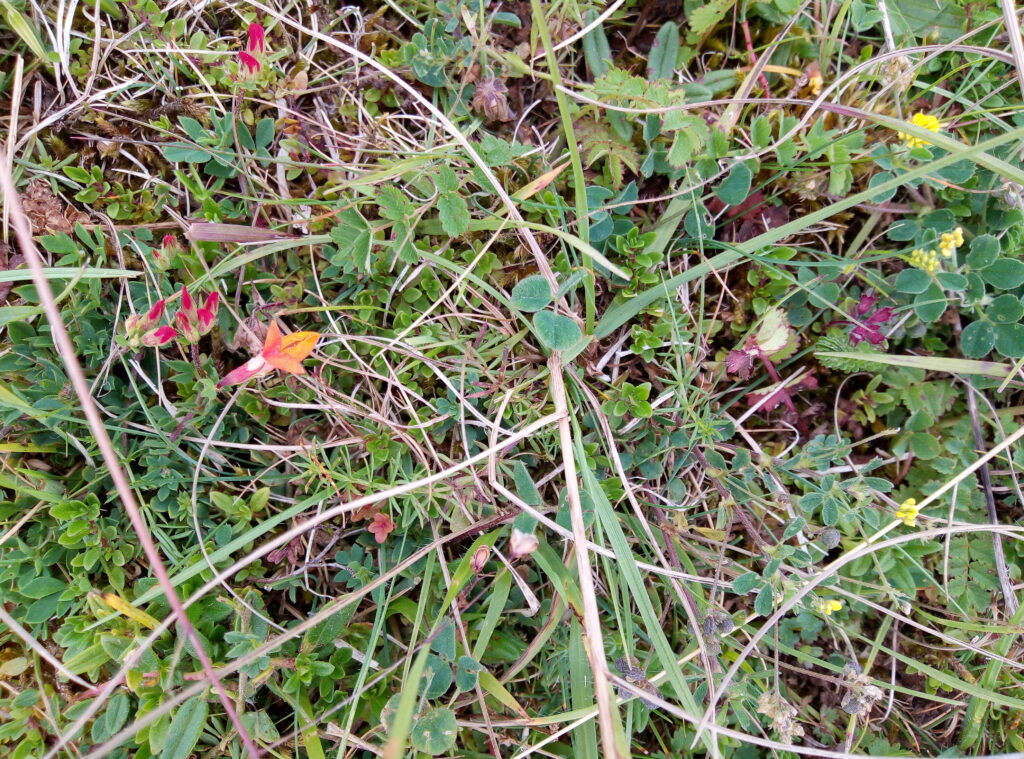
So what now, brown cow?
Historically the Commons were where ‘commoners’ were allowed to graze their animals. However, not many of us have animals to graze anymore.
Only 11 of the 300 local properties with grazing rights are active graziers. Farming has seen many changes over the centuries – the agricultural community has shrunk, herds and farms have grown, and locally the prospect of using the Commons for grazing has become less attractive due to the increase in traffic.
Perhaps the answer would be to reverse our thinking: we have the Commons, and the cows are how we manage them. Should cattle owners be paid for the valuable work they do in helping to sequester carbon and protecting our precious grasslands?
As I’m sure you can tell, we’re not cattle farmers at Minch CAN and don’t claim to be. We do however feel our community is in a unique position to reimagine cattle husbandry, so we’re asking local farmers and calling on experts to help us to better understand our local situation and explore ways in which we can support farmers in being sustainable and future-proof.
If you’re a farmer, we’d love to know your views.
We really need an insight into local cattle farming, as well as other local livestock and crop farms. We’d like to know about the barriers you face when it comes to making your practices more sustainable and less carbon-intensive, your vision for the future of your business, and how our community can support you. Please write to us or if you are a farmer, complete our survey of local food producers to help us build a picture of what’s going on in farming locally. Thank you!
Written by Jess for Minch CAN
Sources
http://css.umich.edu/factsheets/carbon-footprint-factsheet
https://edition.cnn.com/2017/05/15/world/climate-damaging-foods/index.html
https://www.businessinsider.com/one-hamburger-environment-resources-2015-2?r=US&IR=T
https://ourworldindata.org/environmental-impacts-of-food
https://www.fwi.co.uk/livestock/beef/orfc-2021-livestock-have-key-role-in-sustainable-farming
https://timeforchange.org/are-cows-cause-of-global-warming-meat-methane-CO2/
https://interactive.carbonbrief.org/what-is-the-climate-impact-of-eating-meat-and-dairy/
https://www.ciwf.org.uk/farm-animals/cows/
https://www.ecotricity.co.uk/our-news/2019/how-to-help-the-environment-by-going-organic
https://www.grass-fed-solutions.com/sustainable-farming.html
https://www.nationaltrust.org.uk/minchinhampton-and-rodborough-commons/features/i-graze-here
